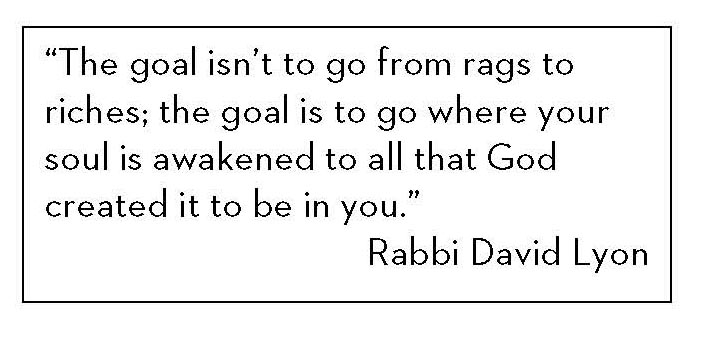Rabbi Lyon’s Blog – 01_26_2018
Rabbi Lyon’s Blog – 01_26_2018
From the desk of Rabbi David Lyon
This week’s Torah portion is called B’shalach (Exodus 13:17-17:16), and it contains the Song of the Sea. It’s the victory song sung by the Israelites after they emerged from slavery in Egypt, on their way to freedom and revelation. The famous Biblical scenes are probably more familiar to us from Hollywood movies than they are from Torah text; but, I’m not disappointed that the epoch event was captured on film and in pictures. It was a story meant to be told in ways that stimulated all the senses.
 In Torah, we learn that “600,000 men on foot, aside from dependents” and “a mixed multitude went up with them,” (Exodus 12:37-38) to depart from Egypt. In Torah, numbers are not always clear, but the vast numbers of groups of men who departed accounted for a great loss of Pharaoh’s workforce. The “mixed multitudes” were likely low-level Egyptian workers who sought freedom from their conditions, too.
In Torah, we learn that “600,000 men on foot, aside from dependents” and “a mixed multitude went up with them,” (Exodus 12:37-38) to depart from Egypt. In Torah, numbers are not always clear, but the vast numbers of groups of men who departed accounted for a great loss of Pharaoh’s workforce. The “mixed multitudes” were likely low-level Egyptian workers who sought freedom from their conditions, too.
To this day, we are obligated to say at Passover, “My father was a fugitive Aramean,” thereby linking our fate with theirs. Memory and not historical data are our obligation to remember and retell. Memory isn’t supposed to dictate to us what the Israelite slaves felt as they clamored for freedom; rather, memory is supposed to evoke in us the feelings of one who, though beaten and down-trodden, emerged from it with faith enough to traverse the long and circuitous path to freedom and revelation. That’s why we’re not taught to examine Moses’ feelings or Miriam’s; we’re taught to see ourselves in their places and be inspired by their deeds.
Bondage is easy to know. Ask anyone who has lived long enough. They will tell you their story of personal bondage, be it physical, emotional, economic, or something more personal than that, and how they overcame it. It’s only a story if they overcame it or tried to overcome it. The outcome isn’t always fancy or sacred; but, it’s always better than where they were. That’s the point.
Many Jewish families already have deep roots in America, but it wasn’t so long ago that many Jewish families left Europe for America on an epoch journey, too. From riches to rags, many of them lost everything before making their way to these shores. They changed their names, prepared documents, and took huge risks to arrive in a strange land filled with more promise and hope than the land they left. Now on this end of the journey and generations hence, it’s easy for us to recall the history of their journey. It’s recorded in databanks and Ellis Island websites. But, that’s all history. If all we did was tell the facts about their ships and their manifests we would miss out on the best part of what they experienced. That’s why Congregation Beth Israel’s MBJLC creates an experiential program for young children to go through the “Sea of Reeds,” and older children to enter America via Ellis Island to begin a new life in a land of freedom. They need to feel it in their souls, too.
Before the week passes, remember the bondage, feel the redemptive moment, and know freedom’s liberating promise for yourself. It’s your story, too. What bondage are you experiencing? What redemptive moment are you seeking? What does freedom’s liberating promise look like to you if you imagined it? There’s no sin in fantasizing; there’s only sin in fantasizing if fantasizing is all you do. And, if you’ve already passed through the dry riverbed and emerged in a better place, tell your story to your children and grandchildren, and those who need to know it. I wouldn’t recommend that you embellish your story, but don’t leave out the parts that evoke emotion, that build suspense, and deliver a pleasant outcome.
The goal isn’t to go from rags to riches; the goal is to go where your soul is awakened to all that God created it to be in you.
